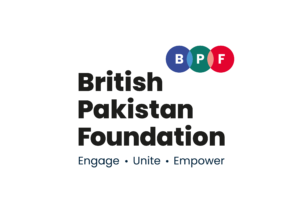Distancing from the past to a new era of justice in Pakistan by Ali Hussain
This 71-year-old South Asian state is currently on the cusp of political change and is optimistically dependent on its new leader to diverge from its past. A past many would like to forget, spanning from political corruption to several military coups and even the murder of a head of state during a rally.
Having won the general elections, Imran Khan the magnetic leader of Pakistan-Tehreek-e-Insaf (Pakistan Movement for Justice) has claimed he would like to see a version of Pakistan that the founder Muhammad Ali Jinnah had envisioned. Mr. Khan wishes to establish a humanitarian state where the lower classes are supported, human development is augmented, and state institutions are better equipped to tackle corruption.
What’s bewildering, however, is that the Oxford-educated leader has two sides him, which he seamlessly switches to and from according to the spectators. One the one hand he displays a contemporary, liberal and cosmopolitan approach, calling for better ties with the USA – despite President Trump slewing Pakistani leaders of deceit and providing safe haven to terrorists. Mr. Khan has also called for better ties with long-term rival India, claiming that Pakistan will take two steps towards them if they take but one towards Pakistan.
On the other hand, Mr. Khan displays sympathy for the Taliban and backs the stringent blasphemy laws. Mr. Khan has also drawn criticism over his remarks on disagreeing with the Western feminist movement and claiming to shoot down drone intruders; which may lead to further hostility with the US. In the coming months it will be decisive to Mr. Khan’s legacy, as to which side he brings in governing Pakistan.
Though a renowned celebrity, Mr. Khan must shun away from his personal life being touted in the media to an outward-looking approach, considering Pakistan’s geostrategic significance to the rest of the world. Pakistan is bordered by major international players such as China, with whom it is collaborating on a $62 billion programme. The project will rebuild road, rail and air systems to make way for the China Pakistan Economic Corridor (CPEC).
This partnership with the Chinese will create a sprawling web of motorways, power plants, wind farms, factories and railways in order to build an economic corridor promoting bilateral connectivity. Mr. Khan can mould CPEC as one of his legacies; which will boost employment and provide the state with much-needed leverage to modernise its economy and image. Chinese investment will need to be repaid, however, which is a growing concern as Pakistan is on the verge of seeking a bailout from the International Monetary Fund (IMF). The IMF has bailed out Pakistan in the past, but it may be a different picture this time round as the US will be ensuring that IMF loans do not go Chinese bondholders.
Mr. Khan must make the economy a top priority through cutting the national budget and privatising state-run businesses. The taxation system in Pakistan is in dire need of reform, considering tax revenue as a proportion of GDP is a meagre 9.1 percent, in contrast to 26 percent in the United Kingdom, as of 2011. It is estimated that as many as 10 million Pakistanis should be paying income tax compared to only 2.5 million who are registered. Such tax systems are created by the elite, for the elite – which has formed a culture of low compliance and widespread failure to pay taxes, as highlighted by a report from the International Development Committee.
Mr. Khan must herd members of Pakistan’s national and provincial parliaments, 67% of whom did not file tax returns according to a 2011 study by the Centre for Investigative Reporting in Pakistan. Through an effective tax system Pakistan can move away from relying on foreign states and banks to preserve its economy, which should be a major focus of Mr. Khan during the next five years.
In the build up to the elections, allegations of military influence propelling Mr. Khan to victory have been rife, and with half of Pakistan’s history being ruled by the military, this is a major cause for concern. The military sustains immense power over national security, militant and extremist groups; with the intelligence service preserving control over nuclear weapons. For Western leaders the most pressing concerns regarding Pakistan (militant groups and nuclear weapons) both fall outside of the remit of the Prime Minister.
Hence why Mr. Khan must operate strategically to separate himself from the military– as it may have been crucial in his rise to power but can dispose of him just as easily if he is no longer serving their purpose. Mr. Khan must focus instead on the economy, employment, foreign investment and diversifying the image of Pakistan by keeping to his promise of making tourism a top priority.
Much of the discourse around Mr. Khan overlooks his previous successes and stronghold in the Khyber Pakhtunkhwa (KPK) region, which is one of the four provinces of Pakistan. In KPK Mr. Khan’s party has appointed 40,000 more teachers, rebuilt institutions, blown up the Taliban and furnished others with toilets and electricity. In 2014 Mr. Khan announced the construction of 350 micro hydel power stations in a major boost to meet the energy crisis.
To augment knowledge exchange and research, Mr. Khan announced the creation of Namal Knowledge City which will include academic blocks, business centres and sports complexes based on Oxford and Cambridge Universities’ models – to foster economic, technological and social development. Mr. Khan also founded a hospital to alleviate the suffering of cancer patients irrespective of their ability to pay. The Shaukat Khanum Hospital treats 85% of its cancer patients free of charge – in a country where the monthly average cost of cancer treatment can far exceed the monthly household income.
With extensive ties to major players in the fields of sport, politics, philanthropy and showbiz, Mr. Khan withholds international leverage and thus possesses the ability to transform the image of Pakistan. The political success of Mr. Khan relies on his ability to stay true to his 22 years of promises, which will be no mean feat. It is too early for Mr. Khan to be written off as a Taliban sympathiser propped up by the all-powerful military. In his victory speech Mr. Khan promised for a different kind of governance in Pakistan and the world will be waiting to see how this pans out and exactly how much justice his movement can bring about.
British Pakistan Foundation Condemns Alarming Rise in Islamophobic Hate Crimes in the UK
The British Pakistan Foundation strongly condemn the recent surge
British Pakistan Foundation Celebrates Historic Election Victory: 15 MPs of Pakistani Origin Elected to UK Parliament
The British Pakistan Foundation (BPF) is thrilled to announce




